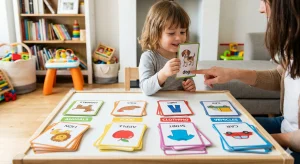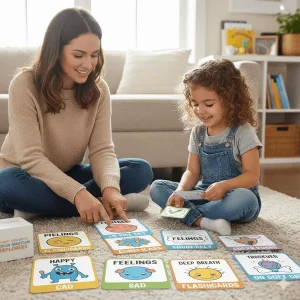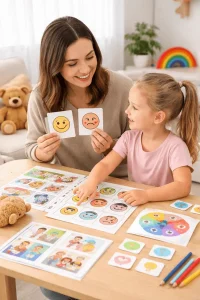Better ways to communicate in relationships
By Prapoorna M
Last Updated: November 10, 2022
Many people underestimate the importance of relationship talks. But after a long, tiring day, we want to recharge our batteries at home. Let that happen when we know better ways to communicate in relationships. The phrase “Honey, we need to talk” puts your partner in a puzzle, creating tension. It is better to create an atmosphere through familiarity and habit in which you can discuss anything. The atmosphere can be created both verbally and nonverbally. So, initiating a conversation is the first step to better communication in a relationship.
Communication with empathy and emotional calmness always plays a unifying effect. If you can resist the first impulse, the relationships are easy to deal with. In heated moments, sleep over the matter and look for a suitable moment for a discussion. Good conversations are especially possible in good times, like on a relaxed Sunday walk or an evening on the couch.
Ways to start an emotional conversation
When couples talk to each other purposefully to generate smooth communication, it cannot be successful. It helps when the partners can talk about their wishes and hopes, along with their worries and fears, without inhibitions. Couples need not fear a conflict if they do not wait for it to arise. It is necessary to develop a fundamentally positive culture of communication. The first step in improving the partnership is improving the culture of discussion. It relies on how to conduct relationship talks, discuss properly, and find constructive solutions.

The course of your conversation is shaped by how you start it. So, you may start by highlighting the important aspects and initiating a conversation on how to do those things. It is not about you telling each other your schedule but what was on your mind that day.
Implementing suggestions
Annie and Harry have been married for ten years. They have been to a relationship counsellor to resolve some recent issues. The counsellor asked them to talk about “How was your day” at dinner time. Both tried this idea sincerely, saying the same answer “Yeah, it was good.” Now, how is this helpful? The conversation ended with one point, and there was nothing more!
When you communicate with each other, it should be positive, approachable, and constructive. Sharing your thoughts on how your day has been can include a few points, like,
- How preoccupied were you today?
- What challenges did you face today? How did you manage?
- What made you smile today?
- How good was the talk you had with a client?
- How good was it compared to the previous day?
Sharing your experiences of the day is a good sign for better communication. Wishing each other a good day at the start of the day and having a good conversation in the evening helps to build good emotional support in relationships. This “How was your day” ritual is mostly avoided by men, as they hide the fear of saying or doing something wrong. They prefer to do nothing at all to avoid criticism. This withdrawal, however, provokes the partner to try more for emotional closeness. But you can resolve such conflicts with professional help.
Is your partner Uncooperative?
Do you think your partner is not as committed as you are towards making better communications happen? Well, you don’t know until you get into their shoes. However, let them know that your doors are open for it.
What can you do to show them?
You must show your partner that you want to talk, build rapport, solve issues, and communicate better. You must follow simple steps so your partner gets tuned into your thoughts. Now, this helps both to get on a similar path, to work this out.
- Mention the little things your partner does to thank them. It shows that you are not taking them for granted.
- Show genuine interest in something he likes and tell what you learned about it. It shows that you are interested in owning them in every possible way.
- Discuss a small list of activities that you would love to do together. Plan a few of them if possible. It shows that you are interested in having fun together.
Let the Conversations be Successful
Having mere conversations for the sake of doing doesn’t serve their purpose. There should be a way to let both include and have a fruitful one.

But what do you need to do during the conversations to have them as smooth as possible? For that, keep these points in mind.
- When one of you is speaking, listen to understand with empathy but don’t interrupt in between, suggesting something.
- Take notes to ensure that any objections you raise are not lost or forgotten. It helps you to concentrate on listening and plan your part later.
- Interpretations often go wrong and could lead to conflict. So, listen to what your partner says but do not go with your assumptions or interpretations. Also, speak what’s on your mind rather than waiting for the other to guess.
- If you want to discuss an emotional topic, give yourself a few days or at least a few moments. It helps the topic to sink in instead of discussing it in the first emotional moment.
Make a habit of using the “I” instead of you.
Express your perception from the first-person perspective. Don’t assume everything to be familiar because there is always a risk that you will assume something that your partner experiences completely differently. For Example: Instead of saying, “You only have time for your friends”, it is good to say, “I feel neglected because we do less together than we used to.” The latter one is understood better, while the former one sounds accusing.
The “I-messages” intend to highlight the problem. They avoid hurting emotions, reproaching the partner, not bringing out old sins or criticizing the partner, and don’t contemplate the issue. Ideally, the partners work to solve the problem and do not injure themselves.
Do you understand “Her?”
As a couple, you need to distribute the work initially and should have terms regarding the discharge of duties. The most important controversial issues in relationships are the division of housework, leisure time, commitments at work, financial issues, turns in childcare, and dealing with each other as partners. Planning will avoid arguments.
Reasons for quarrels
Usually, an emotional partner wants to be heard. Rather than giving suggestions or making accusations, it would be great if you could listen silently and nod empathetically. It is a highly important part of communication in relationships. Most of the time, feeling empathy itself is the greatest need.
Arguments are normal in a relationship. Disputes arise particularly when one of the partners or both are tense due to external stress. These stress factors can vary from work, issues in raising children, conflicts in the family, and others. People tend to communicate poorly when stressed than they are relaxed. The stress triggers irritation which makes the tone harsh and the reactions violent.

When both partners are into working, women are the ones who get stressed often. It is because of the job stress, the responsibility towards children, household activities like cooking and cleaning, and others. They usually have to organize their entire private sphere relatively alone. As a partner, a mother, and an employee, they want to be perfect everywhere and seek appreciation and comfort. Studies show that mothers often do significantly more housework when they become parents. Men tend to drift away, increasingly defining themselves as breadwinners and caregivers.
How to make better conversations
Keeping aside this understanding part, if both partners are ready to communicate with each other openly but still face conflicts, you need to know something. It is important to note that statements that blurt out unfiltered in emotional moments sometimes do more harm than good. So follow the steps for effective conversations.
- Prepare well for a clear conversation where both partners have enough freedom and space to express their thoughts and feelings.
- Have a title for the topic of discussion
- Initiate the conversation on a positive note and emphasize your willingness to find a solution to the issue
- Don’t get provoked, and always return to the factual level.
- Refrain from accusations and speak in first-person statements
- If the conversation seems to take an emotional turn, don’t let the outburst spoil the tune. Put a hold on it. Later, reflect on what went wrong to do better the next time.
- Understand that every human has thresholds where emotions can go astray after a certain level. One must understand their partner’s emotions and deal carefully without hurting them.
When two individuals create a life together and bring different characteristics, views and needs into the partnership, conflicts do arise. Anyone who regularly has a clarifying conversation in the relationship does not have to fear that unsaid things will simmer beneath the surface and eventually explode. We can expect drastic events to create friction between couples, though they have much in common. Under such circumstances, Both partners can renegotiate many details until everyday life has settled down. A clarifying conversation in the relationship is an important tool to represent one’s ideas and to avert escalations.
It is always good to seek professional help, if you think you might not be able to handle all this on your own.
Book your Free Consultation Today
Parent/Caregiver Info:
Client’s Details:
* Error Message









